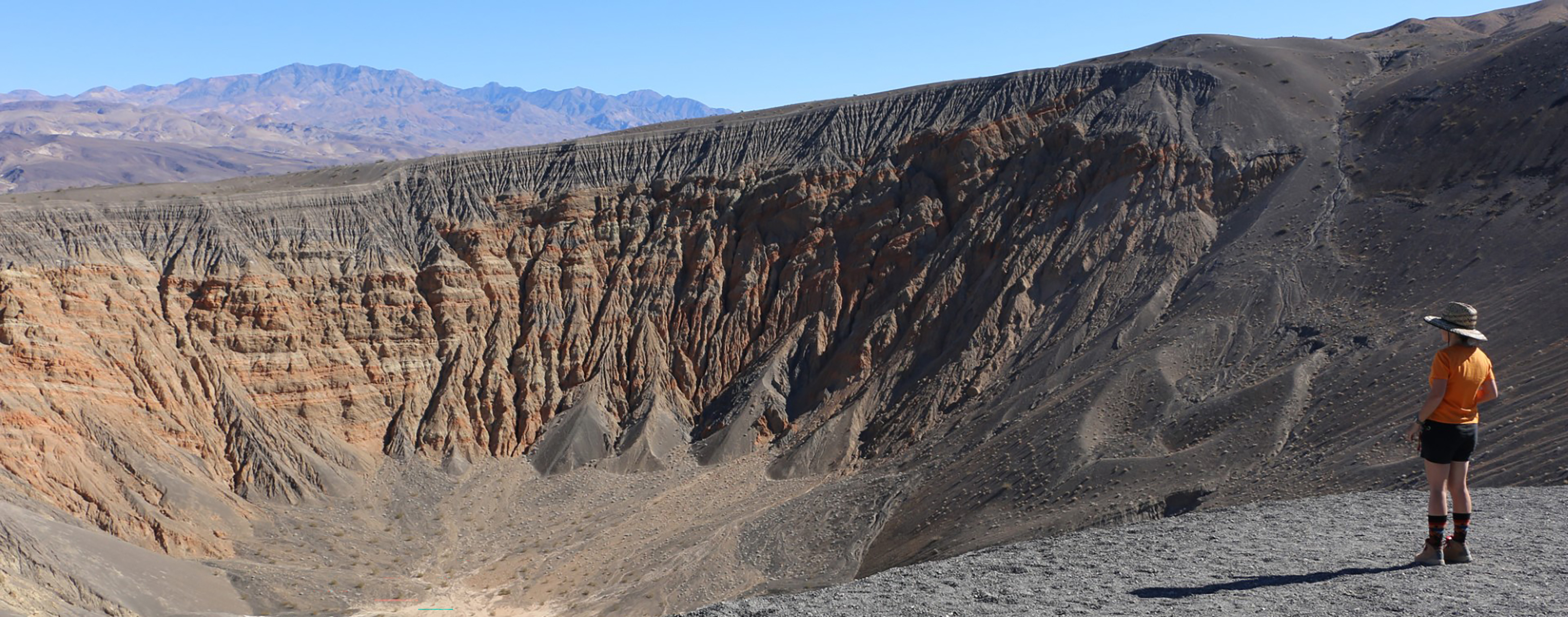News Release

NPS/ H.Pauley
|
Subscribe
|
Contact: Abby Wines, 760-786-3221
DEATH VALLEY, Calif. – On Saturday, Death Valley National Park will reopen 95 miles of flood-damaged roads. Pockets of wildflowers and cool temperatures make this an ideal time to visit the park.
It’s an ideal time to visit Death Valley National Park, according to Superintendent Mike Reynolds. “The hiking in December and January is superb. Added to that, there’s a temporary lake at Badwater and some wildflowers are out.”
The roads will open four months after they were heavily damaged by flash floods caused by the remnants of Hurricane Hilary. The repairs were funded by a combination of the National Park Service’s (NPS) Disaster Supplemental and Federal Highway Administration’s (FHWA) Emergency Relief for Federally Owned Roads (EFRO) programs. The repairs were done by contractors, NPS employees stationed in Death Valley National Park, and NPS employees assisting from other parks across the country.
Roads reopening on Saturday, Dec. 23 include:
- North Highway
- Ubehebe Crater Road
- Old Stovepipe Well Road
- Lower end of Titus Canyon Road
- Racetrack Road
- Lippincott Road
- Hidden Valley Road
- Lost Burro Mine Road
- White Top Mountain Road
These roads provide access to some of the park’s iconic features. Ubehebe Crater is a 600-foot-deep volcanic crater. There are currently unseasonable patches of pink and yellow flowers on crater’s black slopes. The Racetrack is famous for tracks left by moving rocks on the dry lakebed. A lake was present for at least a month after Hurricane Hilary. Now the lakebed is dry again, so people can walk on it without causing damage. No vehicles or bicycles are allowed on the Racetrack.
Many of the park’s roads, including Racetrack Road, are only suitable for high clearance vehicles. Many park roads remain closed until flood repairs are completed. Mesquite Springs Campground will likely open before December 31. Information on Death Valley’s camping, lodging, activities, and road conditions is at nps.gov/deva.
-www.nps.gov/deva-
Death Valley National Park is the homeland of the Timbisha Shoshone and preserves natural resources, cultural resources, exceptional wilderness, scenery, and learning experiences within the nation’s largest conserved desert landscape and some of the most extreme climate and topographic conditions on the planet. Learn more at www.nps.gov/deva.

NPS
Last updated: December 22, 2023
